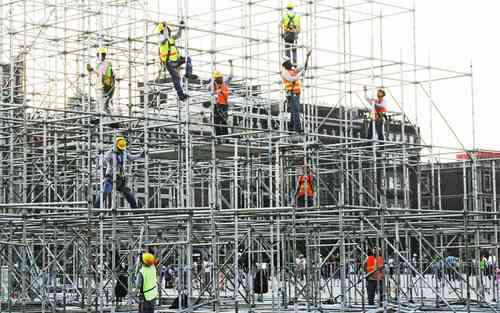The finance ministry has announced a 500 billion baht ($13.53 billion) handout scheme to stimulate the economy in Thailand. The scheme, aimed at boosting overall economic growth and activity, is not specifically designed to help vulnerable groups.
During a press conference earlier in the day, the central bank clarified that while it supports stimulus measures, it prefers a targeted approach. It emphasized the importance of ensuring that the funds are directed towards initiatives that will have the most impact on economic recovery.
The secretary to the finance minister, Paopoom Rojanasakul, responded to a reporter’s question about a news report suggesting that the central bank had raised concerns about the handout plan. He confirmed that while the scheme aims to support all sectors of the economy, it is not intended to be an exclusive program for any particular group.
The exchange rate at the time of reporting was $1 = 36.9500 baht. The finance ministry and central bank are working together to address economic challenges facing Thailand and ensure that stimulus measures are effective in driving economic growth.
In response to concerns raised by some experts about potential inflationary pressures from such large-scale spending, Rojanasakul said that careful monitoring would be undertaken to ensure that prices do not spiral out of control.
Despite some opposition from critics who argue that such measures will only benefit large corporations and wealthy individuals at the expense of ordinary citizens, Rojanasakul insisted that this was not true. “The government has no intention of creating inequality or neglecting vulnerable groups,” he said.
In addition to providing cash handouts to households and businesses across Thailand, other components of the stimulus package include tax breaks for small and medium-sized enterprises (SMEs), loans provided by state banks at low interest rates, and investment incentives for foreign companies looking to invest in new projects in Thailand.
Rojanasakul also emphasized that this measure was just one aspect of a larger strategy aimed at supporting economic recovery following last year’s devastating floods and political unrest.
“We believe this measure will help kickstart our economy back into full swing,” he said.
Overall, Rojanasakul expressed confidence that these measures would prove effective in helping Thailand recover from its current economic challenges and achieve sustainable growth in the long term.

